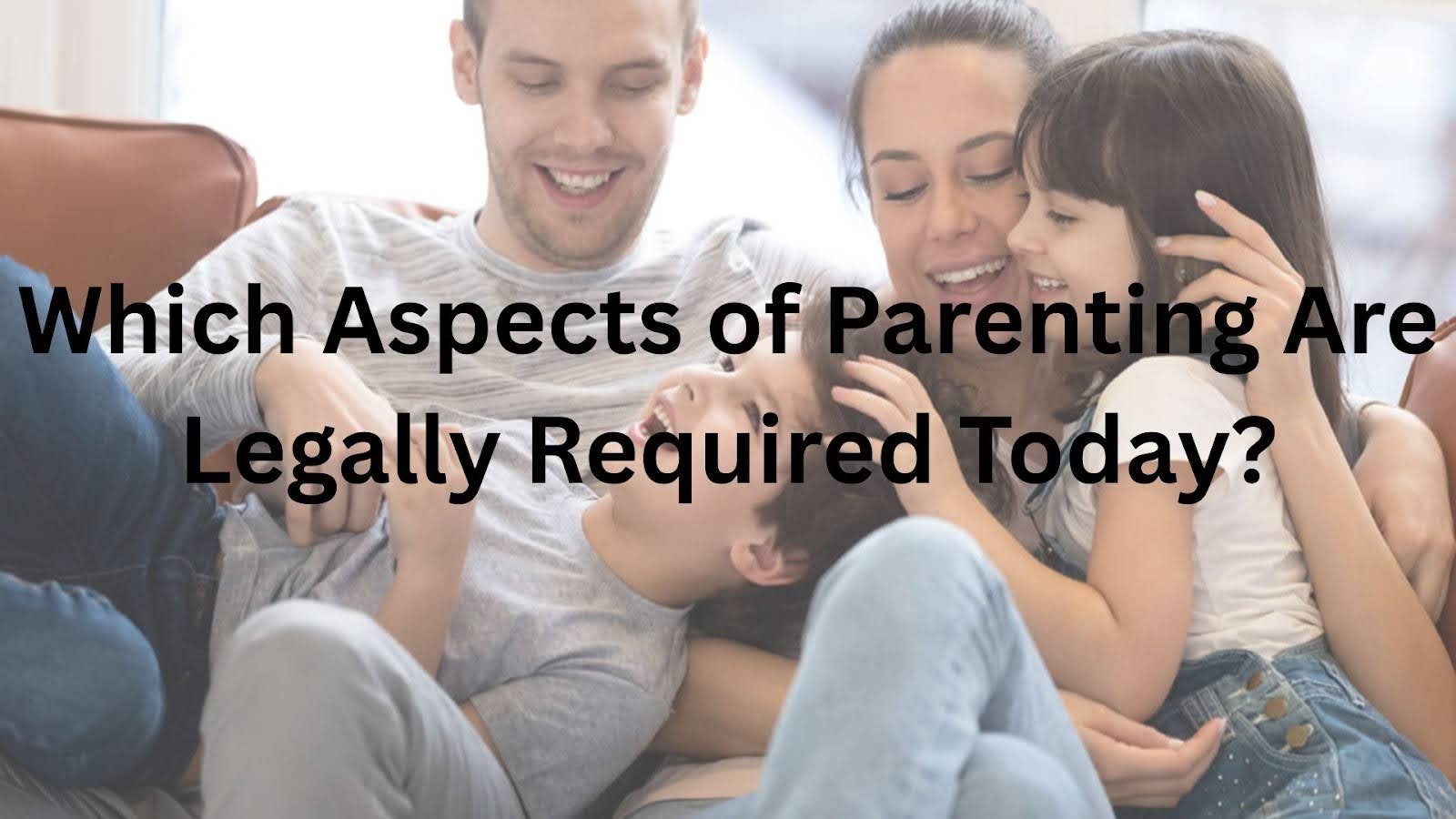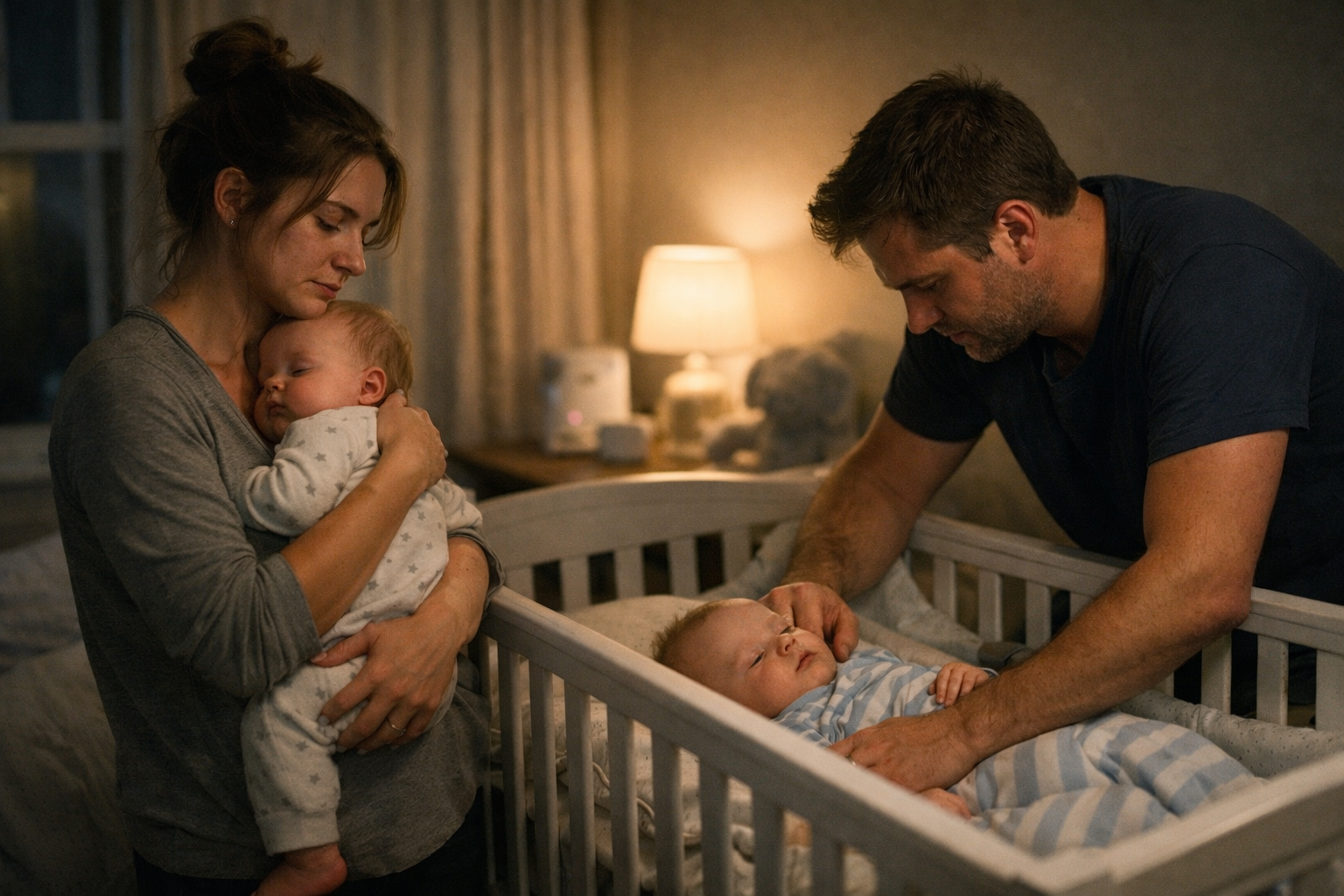My friend Sarah just brought her baby home from the hospital. As she holds her little one, she asks herself: What parts of parenting does the law actually make me do?
Like many new parents, she wants to know the basic facts. She needs to understand the difference between what the law requires her to do and what she wishes to do as a parent.
Knowing which parts of parenting are legally required helps parents follow the law. While parents raise their kids in many different ways, certain basic duties are set by law in every state. These legal rules focus on keeping children safe, healthy, and taken care of.
Every parent must meet basic legal duties. These include giving kids food, a place to live, medical care, and school. Parents must also keep their children safe from harm and make sure they go to school.
This blog will help you understand what the law requires from all parents and what happens when these duties aren’t met.
Core Legal Duties Every Parent Must Fulfill

The law sets clear standards for basic parenting duties. These requirements exist to protect children and make sure their needs are met. Parents who fail to meet these legal duties can face serious consequences, including losing custody of their children.
- Food and basic needs: Parents must provide enough healthy food, clean water, and proper clothing for their children’s age and the weather
- Safe housing: Children need a safe place to live with working heat, electricity, and clean water
- Medical and dental care: Parents must get medical help when children are sick or hurt, including regular checkups and needed treatments
- Education: All children must receive schooling through public school, private school, or approved homeschooling programs
- Age-appropriate supervision: Parents must watch over their children and know where they are, with the level of supervision depending on the child’s age and ability
- Protection from harm: Parents must keep children safe from physical, emotional, and sexual abuse from others and themselves
- Clean and safe home: The home must be free from serious dangers like broken glass, unsafe chemicals, or other hazards
- Financial support: Both parents must provide money for their child’s needs, even after divorce or separation
When parents fail to meet these duties, they may face criminal charges, lose custody rights, or have their children placed in foster care. Courts take these responsibilities very seriously because children depend completely on adults for survival and growth.
Understanding Parental Rights vs. Responsibilities

Parents have both rights and duties under the law. These work together to protect children while respecting family choices. Parents can make decisions about their child’s upbringing, but they must still meet basic legal requirements. The law balances giving parents freedom with protecting children from harm.
Courts use the “best interests of the child” standard when making decisions. This means judges look at what will help the child grow up healthy and safe. Parents’ wishes matter, but the child’s needs come first. When parents make choices that hurt their children, courts can step in to protect the child.
Both mothers and fathers have the same legal duties to their children. Marriage status doesn’t change these responsibilities. Even after divorce or separation, both parents must continue to support and care for their children. The law doesn’t treat parents differently based on gender or family structure.
Child Abuse and Neglect Laws

Child protection laws exist in every state to keep children safe from harm. These laws define what counts as abuse or neglect and set up systems to help children who are being hurt. Understanding these laws helps parents know what behaviors cross legal lines.
Four Types of Legal Child Maltreatment
The law recognizes four main types of harm to children. Each type has specific definitions and legal consequences. Parents need to understand these categories to avoid crossing legal boundaries and to recognize when other children might need help.
- Physical abuse: Hitting, shaking, burning, or other actions that cause physical harm to a child, including injuries from excessive punishment
- Emotional abuse: Repeated verbal attacks, threats, or actions that damage a child’s mental health and self-worth
- Sexual abuse: Any sexual contact or activity involving a child, including exposure to sexual materials inappropriate for their age
- Neglect: Failing to provide basic needs like food, shelter, medical care, education, or proper supervision that puts the child at risk
Reporting Requirements and Consequences
Certain people must report suspected child abuse by law. These “mandatory reporters” include teachers, doctors, social workers, and childcare workers. They can face legal trouble if they don’t report abuse they suspect. Anyone can report suspected abuse, and reports are investigated by child protective services.
Parents who want to report abuse can call local authorities or child protective services. Most states have 24-hour hotlines for reporting. When making a report, provide as much detail as possible about what you’ve seen or heard. The child’s safety is the most important thing to consider.
Legal penalties for abuse and neglect can be severe. Parents may face jail time, lose custody of their children, and have to complete court-ordered programs. Even substance abuse can lead to neglect charges if it affects a parent’s ability to care for their child safely and properly.
School-Related Legal Requirements

All states require children to attend school or receive approved education at home. These compulsory education laws usually apply to children between the ages of 6 and 16, though exact ages vary by state. Parents who don’t send their children to school can face legal action, including fines and court orders.
Parents must make sure their children attend school regularly. Too many absences can lead to truancy charges against both the child and parents. Schools track attendance carefully and will contact families about problems. Parents need valid reasons, like illness or family emergencies, for absences.
Schools have rules that students and parents must follow. This includes the following dress codes, behavior standards, and academic requirements. Parents also have the right to request help for children with learning problems or disabilities. When bullying happens, parents and schools must work together to keep all children safe.
Special Circumstances and Legal Considerations
Some parenting situations involve extra legal rules. Teenage drivers need supervision and proper licensing. Parents remain responsible for their teen’s actions while driving, including accidents and traffic violations. Many states require parental permission for teens to get a driver’s license.
- Leaving children alone: Ages for leaving children home alone vary by state, ranging from 8 to 14 years old, for short periods.
- Teen marriage: Most states require parental permission for anyone under 18 to get married, with some setting minimum age limits
- Divorced parent duties: Both parents must continue meeting legal requirements even after divorce, including child support payments
- Medical decisions: Parents must make sure children get needed medical care, including emergency treatment when required
These special situations often require parents to make careful choices. When in doubt, it’s best to err on the side of caution and follow more protective guidelines. Legal consequences can be serious when parents make poor choices in these areas.
Resources for Parents Struggling to Meet Legal Requirements
Parents who struggle to meet legal requirements have many places to turn for help. Government programs provide food assistance, housing help, and medical care for families in need. These programs exist to help parents meet their legal duties when money is tight or other problems arise.
Community organizations offer additional support through food banks, clothing donations, and childcare help. Religious groups, nonprofits, and local charities often have programs for struggling families. Many communities also have parenting classes and support groups that teach skills and provide emotional support.
Mental health services can help families dealing with depression, anxiety, addiction, or other problems that affect parenting. Many areas have free or low-cost counseling services specifically for families. Legal aid organizations can also help parents understand their rights and duties under the law.
Conclusion
Which aspects of parenting are legally required come down to meeting children’s basic needs for safety, health, education, and care. These core duties include providing food, shelter, medical care, and schooling while protecting children from harm. Every parent must meet these minimum standards regardless of their personal parenting style.
Remember that meeting legal minimums is different from being a good parent. The law sets the lowest acceptable standards to protect children. Good parenting goes far beyond these basic requirements to help children grow and succeed.
If you’re struggling to meet these legal duties, seek help before problems get worse. Numerous resources are available to support parents and families. Laws may vary between states, so check your local requirements to make sure you understand what’s expected in your area.
Frequently Asked Questions
What Happens If I cannot afford to Provide Basic Necessities for My Child?
Government assistance programs like SNAP, WIC, and Medicaid help families afford food, housing, and medical care. Community resources and legal protections exist to help parents who can’t afford basic needs versus those who willfully neglect their children.
At What Age Can I Legally Leave My Child Home Alone?
State laws vary widely on minimum ages for leaving children alone, ranging from 8 to 14 years. Consider factors beyond age, like the child’s maturity, length of time alone, and safety of the neighborhood. Poor supervision choices carry legal risks.
Do Both Parents Have Equal Legal Responsibilities Even After Divorce?
Yes, both parents continue to have equal legal obligations after divorce. This includes child support payments, making important decisions about the child’s welfare, and meeting all basic care requirements. Courts enforce these duties regardless of custody arrangements.
What Should I Do If I Suspect Another Parent Is Not Meeting Legal Requirements?
Contact child protective services or local authorities to report suspected neglect or abuse. Document what you observe and gather evidence when possible. Focus on supporting the child’s safety while following proper reporting procedures for investigation.
Can Homeschooling Parents Face Legal Issues for Their Educational Choices?
Homeschooling is legal in all states but has specific requirements for curriculum, record-keeping, and testing. Educational neglect claims can arise when parents fail to meet state homeschooling standards. Research your state’s requirements and maintain proper documentation.








